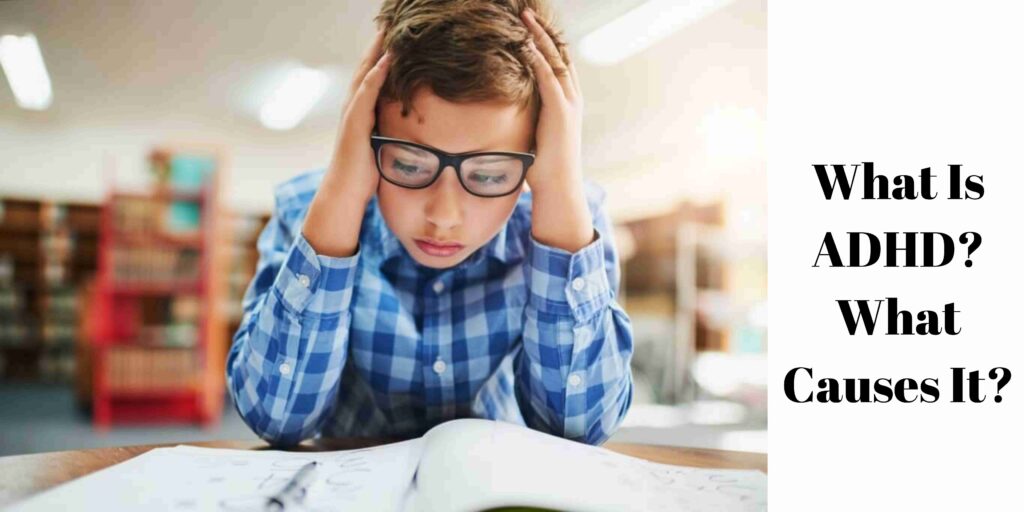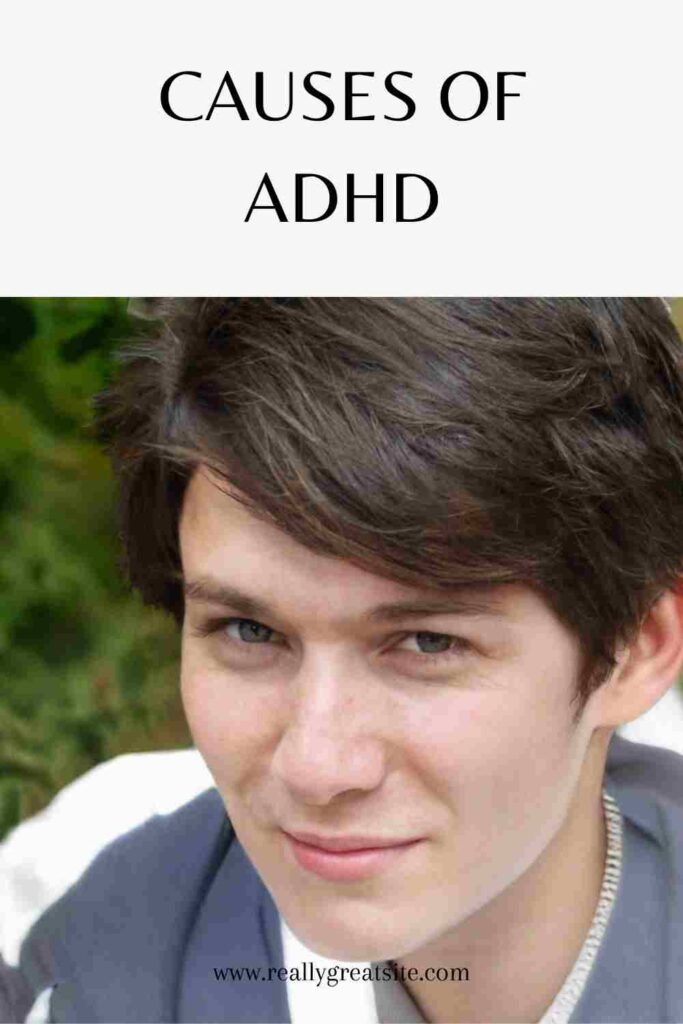ADHD, or Attention Deficit Hyperactivity Disorder is a common neurodevelopmental disorder that usually first shows itself in childhood and often lasts into adulthood. Children with this condition can have trouble paying attention. They might act without thinking about the consequences of their actions, or be overly active. these symptoms make it hard for them to function properly at home, schoolwork – even within social interactions!
According to a study, 2.5% of adults and 8.4% of children suffer from ADHD. Mostly school going children face the problem of ADHD that makes them less active in classrooms or they do face problems in doing schoolwork. ADHD is more common in boys as compared to girls.
Types of ADHD and Their Symptoms
ADHD is not just a problem for children. It affects adults too! Hyperactivity and inattention are common symptoms that many people notice during their childhood. However, if these traits happen at an excessively higher level than what would be expected from someone’s age. Then there may arise some problems functioning within home life, schoolwork, and friendships etc.
There are three most common types of ADHD: inattentive type, hyperactive/impulsive type or combined type. A treatment by booking an appointment on doctor’s emr software can be done after analyzing the symptoms that have been occurred for the past six months.
Inattentive ADHD
Symptoms that are mentioned below frequently occur in the six or five people over the age of 17 years.
- Make careless mistakes in either school or job, don’t pay their attention to detail.
- Can’t stay focus on activities like lectures, tasks, conversations, or reading long articles.
- Feels like they aren’t listening to you when you are speaking.
- Don’t follow the given instructions.
- They are not good at organizing their tasks and works.
- They avoid or dislike tasks that needs continuous mental focus.
- Often forget about their daily life usage things like school papers, books, or keys etc.
- Can be easily distracted
- Forget about their daily tasks. Older teens can forget things like returning phone calls or paying their bills etc.
Hyperactive/Impulsive ADHD
Following are they symptoms that we mostly notice in the patients that are suffering for hyperactive or impulsive ADHD:
- Fidgety, tapping hands or feet and squirming in seat.
- Don’t stay on their seat for a long time.
- Do activities like running or climbing where it is inappropriate.
- Don’t stay quiet in playing or leisure activities.
- Talks too much.
- Start giving their answers before the question is finished.
- Feel it difficult while waiting for his/her turn.
- Usually interrupts or intrudes in other’s conversations.
Combined ADHD
Symptoms that are discussed for the above two types of ADHD are equally present in the patients of combined ADHD.
Causes of ADHD
Scientists have been studying the causes and risk factors for a long time in an effort to find better ways of managing or reducing people’s chances from developing ADHD. It is unknown what triggers this condition, but recent research shows that genetics plays an important role. Some studies even link it with our DNA!
In addition to our DNA scientists are studying about some other possible causes that can cause a person to suffer from ADHD. It includes:
- Low birth weight
- Brain injury
- Exposure to any environmental risks during pregnancy or in early ages
- Use of alcohol or tobacco in pregnancy
- Premature delivery
There is no scientific evidence to support that ADHD can be caused by popularly held views. It includes eating too much sugar, watching too many television shows or movies about children with this disruptive disorder and their struggles in school. While various factors might make symptoms worse for some people (e.g. stress). There’s not enough data yet linking them as main causes behind attention deficit hyperactivity disorder (ADHD).
Diagnosis
It’s a process with several steps to decide if your child has ADHD. There is no single test for diagnosing this disorder, and other problems like anxiety or depression can have similar symptoms too! It is important for a child to have an accurate diagnosis of ADHD so they can receive the treatment that best suits them. Diagnosing this disorder includes taking medical records and interviewing people close with information. That how often symptoms show up as well what kinds if behaviors arise due its occurrence.
Treatments
ADHD is one of the most common mental health disorders in children. It’s often best treated with medication and behavior therapy, but preschool-aged kids need their parents’ help first before they suffer from the disease alone. The goal for the treatment is to plan to be flexible enough. So, it can work with what’s going on in your child’s life. You should always have a follow up visit and monitor closely at first, then make changes if needed along the way.
How to Manage Symptoms and Stay Healthy?
Healthy living is important for all children and can be especially beneficial to those who suffer with ADHD. By following a healthy lifestyle, you are able not only help your child deal better but also live happier lives! Following are some of the healthy behavior tips that you can follow to manage your ADHD symptoms:
- Develop a healthy eating habit that includes plenty of fruits, vegetables, consuming whole grains, and selecting lean protein resources
- Participate in physical activities on daily basis
- Limit the time of your screen usage like TV, computer, mobile phones, or other electronics devices
- Get enough sleep recommended by your doctor according to your age
ADHD in Adults
ADHD is a common mental health disorder that can affect anyone, even after they’ve grown up and started their own lives. Adults with the condition may experience difficulties in school or at home. But there are many different types of symptoms which make it hard for others to tell when someone has this problem just by looking into his/her eyes!


